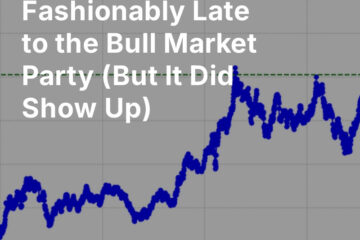U.S. and Global Stocks: The U.S. Remains the Place to Be
Here we are in September, and as we have mentioned before September is a month for market adjustments before we move into what is usually the strongest period for U.S. stocks, which is from October through April.
There have been over thirty 3–5% corrections in the U.S. market since the bull began back in 2009, and we believe that there is a possibility of another such correction this month. Of course, there have been over 30 strong stock market recoveries from these corrections since the bull market began, and we believe that October will begin another strong market movement upward. So we will be buyers of stocks that fall into attractive valuation ranges during any correction that occurs.
From a valuation point of view, the U.S. market is not over-valued, and remains well within normal historical valuation boundaries. In spite of good economic growth, strong corporate profits, strong employment, and rising disposable personal income for Americans as a whole, stocks are not overvalued. Looking ahead, we see continued strong economic growth and corporate profits for the remainder of 2018 and into 2019. During the last two months, corporate profit growth of around 24% year-over-year have been in the center of the news and this has created demand for stocks. Most earnings quarterly reports have been made until the September quarter ends and new reports begin in October.
As a result, the main economic news is trade disputes with Europe, Canada and China. The good news of a bilateral trade deal with Mexico has been reported and digested, so we are in for up-and-down negotiation news, which will not provide strong optimistic data as earning reports have.
Thus we anticipate a choppy and slightly down market in September, to be followed by a return of rising stock prices in October.
Europe
Europe suffers from fears of banking problems or failures in Italy and the southern tier countries of Europe, and disaffection about immigration policy. Many European voters worry that approximately 3 million middle-eastern refugees currently in Turkey could join the continued inflow of refuges from north and central Africa who have been steadily arriving in Europe for years.
The economic costs and social changes brought about by the influx of immigrants has created a rise of anti-immigrant groups in almost all European countries, and some formerly pro-immigration countries, such as Sweden, could elect governments which oppose immigration. Hungary, Poland, and Austria already are unhappy about too much immigration.
This, combined with increased costs of immigration settlement and support, continues to weaken the economic situation of many European nations.
Asia
There is no doubt that the current bear market in China and the weaker currencies in India, China and almost all other Asian countries can be traced to the strong U.S. dollar and to the prospect that China will have to make substantial compromises in order to reach a trade deal with the U.S., which is their biggest export market. Although emerging market and Asian stocks in general are getting more inexpensive, we do not believe that it is yet time to buy them.
We will watch for a weakening of the U.S. dollar (or at least a sideways pattern in the U.S. dollar), and a more substantial commitment to liquidity provision into the Chinese financial system before getting involved.
Latin America
Much of Latin America is in political turmoil. Brazil has corruption trials of government officials and a slowing economy. Argentina is trying to put the country back together again after the Peronist rule of Néstor and Cristina Fernández Kirchner. Venezuela is collapsing as a functioning country. Only a few Latin American countries are doing well.
In Mexico the newly elected president of Mexico, Andrés Manuel López Obrador (known popularly as “AMLO”) has frightened international investors because he has appointed loyalists who are otherwise unqualified to be heads of the national oil company Pemex and the Mexican Social Security Institute (IMSS) which is responsible for the medical services for 80 million Mexicans. His choice to run the bankrupt Federal Electricity Commission is a highly controversial senator who will be taking over a huge bureaucracy which is making massive losses annually. It sounds a little bit, on a smaller scale, like what Hugo Chávez did in Venezuela after he was elected.
We are focusing on the U.S. and currently avoiding Latin America.
Gold
Gold continues to struggle in a trading range, and does not seem to be able to move up even though trade fears, immigration fears, currency declines, and political scandals are rampant in the world. Often such events act to create demand for gold purchases by governments and investors. Are central banks of the weak currency countries selling some gold? We will not know that for months until new data come out. The technical outlook for gold is poor, and if it breaks $1,185 some technicians are calling for a fall below $1,000.
Cryptos
The U.S. patent office approved a Square [NASDAQ: SQ] patent that would integrate crypto payments into its platform. Notably, the patent shows SQ’s solution to a major problem afflicting cryptos — slow transactions. Norwegian crypto news website CCN notes:
“Notably, the patent also details a process that allows the POS system to eliminate latency in cryptocurrency transactions, ensuring that even bitcoin transactions (often criticized for their slower confirmation times) can be approved at roughly the same speed as a credit card transaction.
“The payment service will accomplish this by maintaining a private blockchain that records transactions from Square-managed wallets in real-time, allowing the POS system to identify the changed balances before the transactions are written to the public blockchain. According to the patent, this does not completely eliminate the risk of double spend attacks, but it transfers that risk from the merchant to the payment service.
“The patent also notes that transaction latency could be eliminated by having user funds custodied by the payment network itself, allowing Square to simply update its internal ledger rather than writing any transactions to the blockchain.”
This shows a major fintech firm applying itself to solve crypto problems, and will be part of the foundation of the next crypto bull market when the bear has run its course.
Thanks for listening; we welcome your calls and questions.



